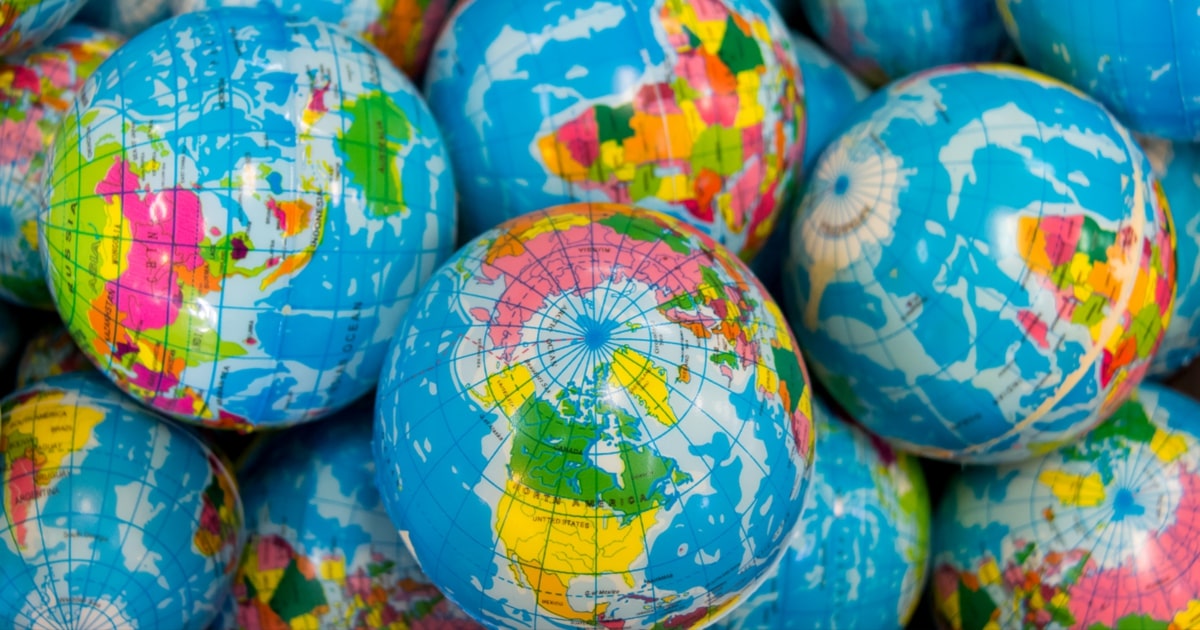Binary Choice and American Politics in the Age of Complexity
The domestic set-up in the US, with two dominant political parties, is not conducive to constructive engagement. It favors paralysis or overreach.
January 16, 2017

As Donald Trump is about to assume the Presidency of the United States, there are three important questions:
1. Why is it that so much of the American political debate runs along such partisan lines?
2. Why is almost everything cast as a binary either/or choice — rather an effort to find the middle ground amidst the inevitable shades of grey?
3. Why is there so little readiness to compromise?
Harshness, not flexibility
The rigor of the two-party system in the United States is one of the key causes of the extreme stratification of the U.S. political debate. If one effectively only has the choice of one of two parties, or two candidates, in any election, choice is severely limited.
What is heralded as having the benefit of producing clarity of outcomes in the case of the contemporary United States only ends up in producing a maximum of mutual recriminations and extreme vitriol.
The harshness that this produces is reminiscent of certain African countries with very feeble democratic traditions. The current state of play in Washington is a far cry from the high-handed rhetoric the world has been treated to for a very long time about the presumed virtues of American democracy.
Standing alone
Among the democratic countries of the world, the United States stands nearly alone with such a strict two-party system.
While other nations, such as the United Kingdom and Canada, share similar regimes in terms of first-past-the-post elections and a dislike of proportional representation, those countries also have significant presences by additional parties, even if they don’t win nationally.
Perhaps only Jamaica and Malta, two small island nations of the former British Empire, can be considered strict two-party systems, alongside the United States.
Politics is not binary
The lack of a viable third party means that the political process essentially remains binary and produces ever less cross-partisan coalition building. As a result, the readiness for compromise is often non-existent.
Americans no longer pay much credence to Benjamin Franklin’s urgent call to “hang together.” There is a certain perverse lust for being hung separately.
Trump as an accelerant
There is nothing in Donald Trump’s personality that suggests that his presidency will not serve one goal — to exacerbate this divisiveness. Unlike George W. Bush and Barack Obama, he doesn’t even pretend to act as a “uniter.”
Of course, nothing says that the two big U.S. parties couldn’t reach “across the aisle”, as the phrase goes. They certainly used to do so. Today’s political reality, though, is that any such bridge-building is increasingly considered treasonous by the true believers in either camp.
This not conducive to proper political management in the age of complexity. And nowhere does domestic political dysfunction have such global effects as in the United States — which is what makes American dysfunction a global hazard.
Unable to see grey tones?
Complex issues, and consequently the need to make complex choices, militate against binary options. While it seems elegant to approach choices in an either/or mode, such simplicity is deceptive (and best left to being the basic organizing principle of computers).
In the age of complexity, political power is easier to organize when there are at least three viable political parties, so that two of them can form a coalition of some dependability — and to ensure that the political center has some sense of being actually represented in government.
American coalitions
American political theorists like to argue that coalition-building occurs in the U.S. two-party system as well, but this happens only on an issue-to-issue basis and hence is not constant for any length of time.
Such ad hocery suggests more flexibility. The trouble is that in each case, a new issue coalition has to be built. And with the high degree of professionalization of American politics and lobbying, that becomes harder. Differently put, people become better at blocking any opposing interests from gaining the upper hand.
In countries that have multi-party systems, coalition governments strike overarching deals at the beginning of their term, which allow the various parties to make trades spanning very disparate sets of issues. That way, everyone gets at least some of what they want.
Limiting choice in the land of the free
In U.S. politics, one sees a lot of adolescent shouting matches on cable TV. In fact, these programs thrive off the shouting. They love extreme displays of partisan sprit.
Political compromise is no longer regarded as a virtue to move the national agenda ahead. Rather, it is regarded as a weakness.
Any way out?
The odds for U.S. democracy ever to be organized as a multi-party parliamentary democracy, with a coalition-building element built in more or less permanently, are zilch.
As if that weren’t bad enough, the United States is caught in the throes of its increasingly vicious and unbending two-party system for other institutional reasons.
The gerrymandering of election districts and the importance of campaign finance both protect incumbents in an anti-democratic manner. They diminish, if not eliminate, the relevance or attractiveness of middle-of-the-road candidates standing for election in either party. They only further cement the ossification of the U.S. political process.
Takeaways
Nowhere does domestic political dysfunction have such global effects as in the United States.
While it seems elegant to approach choices in an either/or mode, such simplicity is deceptive.
Political power is easier to organize when there are at least three viable parties.
The US's two party system limits choice in the country heralded as "the land of the free."
Only Jamaica and Malta, two small island nations, can be considered two-party systems, alongside the United States.
In coalition governments, everyone gets some of what they want. In the US system nobody gets anything.

